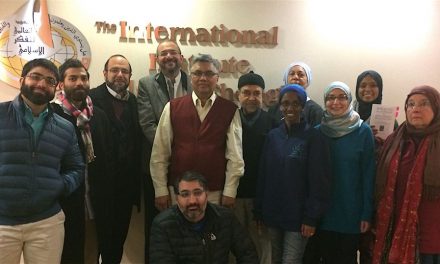
In his well-known book, Al-Hikam(Words of Wisdom), sheikh Ahmad Ibn `Ataa’illah As-Sakandari says:
Every speech comes out with a cover from the heart of the speaker. If Allah allows a speaker to express himself, people will understand his words and comprehend his gestures.
This stage on our journey to Allah relates to the believer’s speech in which he tells people about Allah. Every believer has a responsibility to call people to their Creator, to remind them of their Lord, and to participate in reform.
{I desire no more than reform in so far as it lies within my power.} (Hud 11:88 )
{Say [O Prophet]: “This is my way: Resting upon conscious insight accessible to reason, I am calling you all unto Allah – I and they who follow me”.} (Yusuf 12:108)
This was the mission of every prophet of Allah and every follower of the right path.
There are different kinds of speech. There is a certain type of speech which has a considerable influence on people. This speech, as the Sheikh explains, is not the fluent speech that comes out from an intelligent mind or an eloquent tongue, but it is the speech that comes out from an enlightened heart.
Now I recall many speeches given by Prophets, reformers, and righteous leaders; a few sentences that changed the course of history. Their speeches came out of pure hearts. Some of these speeches deserved to be recorded by Allah in His Glorious Book, the Qur’an. The following are a few examples.
Here is a speech delivered by Prophet Ibrahim (peace be upon him):
{Said Abraham: “Have you, then, ever considered what it is that you have been worshipping – you and those ancient forebears of yours? Now as for me, I know that, verily, these false deities are my enemies, and that none is my helper save the Sustainer of all the worlds, who has created me and is the One who guides me, and is the One who gives me to eat and to drink, and when I fall ill, is the One who restores me to health, and who will cause me to die and then will bring me back to life, and who, I hope, will forgive me my faults on Judgment Day! O my Sustainer! Endow me with the ability to judge between right and wrong, and make me one with the righteous, and grant me the power to convey the truth unto those who will come after me, and place me among those who shall inherit the garden of bliss! And forgive my father for, verily, he is among those who have gone astray, and do not put me to shame on the Day when all shall be raised from the dead: and when only he will be happy who comes before Allah with a heart free of evil!”}. (Ash-Shu`araa’ 26: 75-89)
Read also the speech of Prophet Nuh (peace be upon him):
{And convey unto them the story of Noah-when he said unto his people: “O my people! If my presence among you and my announcement of Allah’s messages are repugnant to you -well, in Allah have I placed my trust. Decide, then, upon what you are going to do against me, and call to your aid those beings to whom you ascribe a share in Allah’s divinity; and once you have chosen your course of action, let no hesitation deflect you from it; and then carry out against me whatever you may have decided, and give me no respite! But if you turn away from the message which I bear, remember that I have asked no reward whatever of you: my reward rests with none but Allah, for I have been bidden to be among those who have surrendered themselves unto Him”} (Yunus 10:71-72)
Read also this dialogue between Prophet Musa (peace be upon him) and Pharaoh and his people:
{Said Pharaoh: “And what and who is that ‘Sustainer of all the worlds’?” Moses answered: “He is the Sustainer of the heavens and the earth and all that is between them: if you would but allow yourselves to be convinced!” Said Pharaoh unto those around him: “Did you hear what he said?” And Moses continued: “He is your Sustainer, too, as well as the Sustainer of your forefathers of old!” Pharaoh exclaimed: “Behold, your ‘apostle’ who claims that he has been sent unto you is mad indeed! But Moses went on: “He of whom I speak is the Sustainer of the east and the west and of all that is between the two”- as you would know if you would but use your reason!” Said Pharaoh: “Indeed, if you choose to worship any deity other than me, I shall most certainly throw you into prison!” Said he: “Even if I should bring about before you something that clearly shows the truth?” …} (Ash-Shu`araa’ 26:22-30)
Read also the speech of Prophet `Isa (peace be upon him):
{But Jesus said: “Behold, I am a servant of Allah. He has vouchsafed unto me revelation and made me a prophet, and made me blessed wherever I may be; and He has enjoined upon me prayer and charity as long as I live, and has endowed me with piety towards my mother; and He has not made me haughty or bereft of grace. Hence, peace was upon me on the day when I was born, and will be upon me on the day of my death, and on the day when I shall be raised to life again!’’} (Maryam 19 30-33)
Read the speech of the believing man of Pharaoh’s family:
{Still, the man who had attained to faith went on: “O my people! Follow me: I shall guide you onto the path of rectitude! O my people! This worldly life is but a brief enjoyment, whereas, behold, the life to come is the home abiding. There, anyone who has done a bad deed will be requited with no more than the like thereof, whereas anyone, be it man or woman, who has done righteous deeds and is a believer withal – all such will enter paradise, wherein they shall be blest with good beyond all reckoning! And, O my people, how is it that I summon you to salvation, the while you summon me to the fire? For you call upon me to deny the oneness of Allah and to ascribe a share in His divinity to aught of which I cannot possibly have any knowledge the while I summon you to a cognition of the Almighty, the All-Forgiving! There is no doubt that what you summon me to is something that has no claim to being invoked either in this world or in the life to come – as there is no doubt that unto Allah is our return, and that they who have wasted their own selves shall find themselves in the fire: and at that time you will have cause to remember what I am telling you now. But as for me, I commit myself unto Allah: for, verily, Allah sees all that is in the hearts of His servants.”} (Ghafir 40 :38-44)
You can feel, through the words, that all the above speeches came out with a cover of light from the heart of the speakers.
The same holds true for Prophet Muhammad’s speech. Read, for example, his speech in the battle of Tabuk:
“Verily the most veracious discourse is the book of Allah. The most trustworthy handhold is the word of piety. The best of religions is the religion of Ibrahim. The best of traditions is the Sunnah of Muhammad. The noblest speech is the mentioning of Allah. The finest of narratives is this Qur’an. The best of affairs is that which has been firmly resolved upon. The worst matters are those which are created without Godly sanction. The best of ways is the one trodden by the Prophets. The noblest death is the death of a martyr. The most miserable blindness is waywardness after guidance. The best of knowledge is that which is beneficent. The best guidance is that which is put into practice. The worst blindness is the blindness of the heart. The upper hand is better than the lower (i.e., it is better to give than to receive). The little that suffices is better than the abundant and alluring. The worst apology is that which is tendered when death stares one in the face. The worst remorse is that which is felt on the Day of Resurrection. Some men do not come to the Friday prayer, but with hesitance and delay. And some of them do not remember Allah but with reluctance. The tongue that is addicted to false expression is a bubbling spring of sins. The most valuable possession is contentment of the heart. The best provision is that of piety. The highest wisdom is the awe of Allah. The best thing to be cherished in the hearts is faith and conviction; doubt is part of infidelity. Impatient wailing and fulsome praise of the dead is an act of ignorance. Betrayal leads one to the fire of Hell. Liquor is the mother of evils. Each one of you must resort to a place of four cubits (in the grave). Your affairs will be decided ultimately in the next life. He who pardons is himself granted pardon. He who forgives others, is forgiven by Allah. He who represses anger, Allah rewards him. He who faces misfortunes with perseverance, Allah compensates him. He who shows patience and forbearance, Allah gives him a double reward. He who disobeys Allah, Allah chastises him”. (Reported by al-Bayhaqi)
This is a speech which came out from the Prophet’s heart so that it reached the people easily and it had a considerable influence on them. It is a prerequisite for anyone who tells the people about their Creator that his speech should come out from the heart.
If you want to offer advice to any one, you should mend your heart first. When you have a sincere intention in your heart, your influence on people will be stronger, i.e., people will understand your words and comprehend your gestures, as the Sheikh says in this word of wisdom.
The Prophet’s companions also gave very fluent speeches which did not only influence their audience but changed the course of history as well. Abu Bakr as-Siddiq (may Allah be pleased with him) gave a very important first speech after he became a Caliph. One of the most influential statements was the following:
“I have been given the authority over you, and I am not the best of you. If I do well, help me; and if I do wrong, set me right”.
`Umar ibn al-Khattab (may Allah be pleased with him) said:
“When did you enslave people whose mothers bore them free?”
`Uthman ibn `Affan (may Allah be pleased with him) said:
“O people, you need an active ruler not a ruler who is a good speaker”.
`Ali ibn Abi Talib (may Allah be pleased with him) said:
“The keeper of a safe dies and what he guards and the treasures remain, however, a man of knowledge lives throughout the ages”.
Ibn `Ataa is right: If Allah allows a speaker to express himself, people will understand his words and comprehend his gestures.






